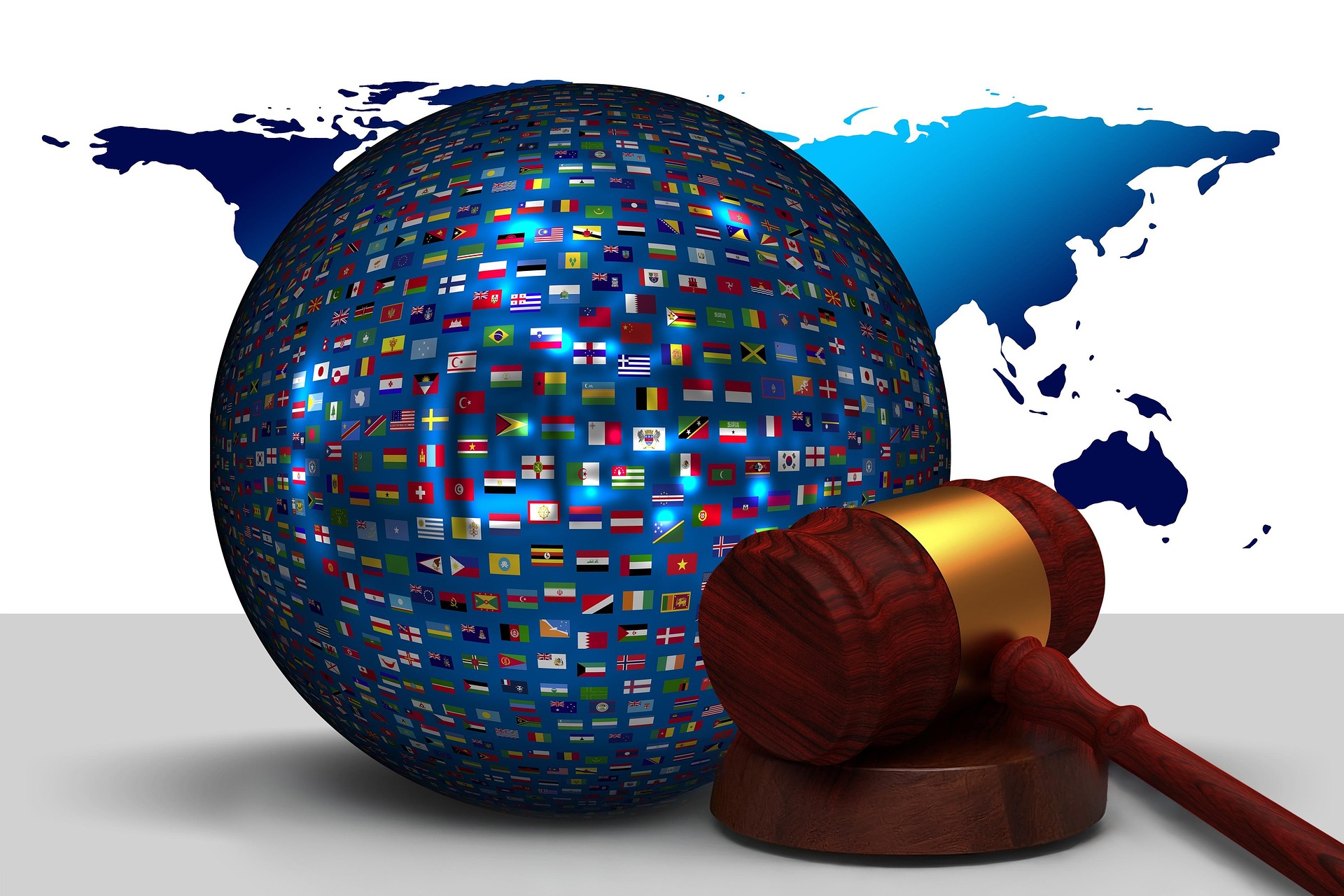
Global Legal Frameworks for Decentralized Autonomous Organizations
Decentralized Autonomous Organizations, commonly designated as DAOs, represent a fundamentally novel organizational paradigm that harnesses blockchain technology to establish governance structures operating without traditional corporate hierarchies or centralized control mechanisms. At their core, DAOs constitute code-based governance systems wherein operational protocols are inscribed within smart contracts that execute automatically on distributed ledgers, with decisions rendered collectively through tokenized voting mechanisms embedded within the protocol architecture.
The Nature and Functions of Decentralized Autonomous Organizations
The conceptual genesis of DAOs emerged from aspirations to create organizations capable of functioning with complete transparency, censorship resistance, and independence from conventional power structures. In contradistinction to traditional corporations, where boards of directors and executive management exercise decisive authority, DAOs operate through distributed consensus mechanisms, whereby each governance token holder may participate in decision-making processes proportionate to their token allocation. This architecture theoretically obviates the necessity for trust in centralized authorities, substituting instead algorithmic certainty and mathematical consensus.
Functionally, DAOs serve diverse purposes within the digital ecosystem. They may govern decentralized finance (DeFi) protocols, allocating capital and determining developmental trajectories; finance projects through community-driven grant mechanisms; manage digital assets and treasuries; coordinate community activities toward shared objectives; or conduct investment operations. For instance, MakerDAO administers the DAI stablecoin protocol, making determinations regarding risk parameters and collateralization requirements, while Uniswap DAO controls the development and governance of one of the largest decentralized cryptocurrency exchanges.
The operational mechanism of DAOs rests upon three fundamental components: governance tokens conferring voting rights, smart contracts executing decisions, and proposal-and-voting protocols. When a DAO member submits a proposed modification, other members vote using their tokens, and upon achieving predetermined approval thresholds, smart contracts automatically implement the ratified decision without human intervention. This automation theoretically eliminates risks of corruption, nepotism, and other forms of abuse characteristic of traditional organizational structures.
Fundamental Legal Challenges Confronting DAOs
Despite their innovative character, DAOs encounter fundamental legal impediments arising from the disjuncture between their decentralized nature and traditional legal systems designed for centralized entities. The primary and most consequential challenge concerns the absence of legal personality. Most jurisdictions recognize specific organizational forms – corporations, foundations, associations – each possessing clearly defined governance structures, liability frameworks, and obligations. DAOs, functioning as distributed networks of participants without formal registration or physical domicile, fail to conform to these established categories.
The absence of legal personality generates cascading practical difficulties. DAOs cannot contract in their own name, precluding them from leasing offices, employing personnel, or engaging service providers. They cannot establish banking relationships, compelling exclusive reliance upon cryptocurrencies and constraining their capacity to interface with traditional economic systems. Intellectual property concerns prove equally problematic – without legal personality, DAOs cannot register patents, trademarks, or copyrights, exposing their innovations to appropriation by competitors.
The liability question presents another critical challenge. Traditional corporations maintain clear limited liability mechanisms protecting shareholders from personal losses exceeding their investment. For DAOs, participants’ legal status remains ambiguous. Are token holders general partners bearing unlimited joint and several liability? Or merely software users with no attendant responsibility? Recent jurisprudence, particularly the CFTC v. Ooki DAO matter, suggests courts may characterize DAOs as unincorporated associations, imposing liability upon all participants holding governance tokens.
Jurisdictional complications further confound DAOs’ legal status. Traditional legal entities maintain clearly established domiciles and governing jurisdictions. DAOs, conversely, exist in cyberspace with participants distributed globally and technical infrastructure dispersed across multiple servers in various nations. Which law governs when DAO members from Japan, Germany, and Brazil make decisions affecting users in the United States? This jurisdictional ambiguity creates legal uncertainty for both DAO participants and regulators attempting to enforce applicable law.
Token Classification and Regulatory Implications
The classification of governance tokens under securities law presents a particularly complex aspect of DAO regulation. The Securities and Exchange Commission established precedent through its 2017 analysis of “The DAO”, applying the Howey test to determine whether DAO tokens constitute securities. This test examines whether there exists an investment of money in a common enterprise with profit expectations derived primarily from others’ efforts. The SEC concluded that The DAO tokens satisfied these criteria because investors contributed Ether expecting returns from investments made by DAO curators.
This classification carries far-reaching consequences. Should governance tokens constitute securities, their issuance becomes subject to registration requirements, including prospectus preparation, regular financial reporting, and investor protection compliance. For many DAOs, particularly those functioning in genuinely decentralized manners without central issuers, satisfying these requirements proves practically impossible. Paradoxically, attempts to comply with securities regulations may necessitate governance centralization, undermining the fundamental principle of decentralization.
Different jurisdictions adopt varying approaches to this question. The European Union, through the Markets in Crypto-Assets (MiCA) Regulation, introduces distinctions among different crypto-asset types, where governance tokens may be classified as utility tokens if their primary function involves platform access rather than profit generation. Switzerland, through FINMA, employs a functional approach, classifying tokens as payment, utility, or asset tokens depending upon their economic function. Japan develops specific categories for governance tokens, recognizing their hybrid nature combining securities elements with membership rights.
The problem compounds when considering secondary trading of governance tokens on cryptocurrency exchanges. Even where initial token distribution does not constitute a securities offering, subsequent speculative trading may imbue them with investment instrument characteristics. This dynamic nature of governance tokens, which may evolve from governance tools to speculative assets, challenges static regulatory frameworks.
Pioneering Legislative Solutions
In response to these challenges, several jurisdictions have undertaken pioneering efforts to create dedicated legal frameworks for DAOs. Wyoming merits particular recognition as the first American state to enact comprehensive legislation recognizing DAOs as a form of limited liability company in 2021. The Wyoming DAO LLC Act permits DAO registration while preserving their decentralized character, simultaneously offering limited liability protection for members. Notably, Wyoming law explicitly recognizes algorithmic governance, where decisions may be made entirely through smart contracts without human intervention.
Wyoming advanced further in 2024 by introducing the Decentralized Unincorporated Nonprofit Association (DUNA) structure, offering an alternative legal form particularly suitable for nonprofit DAOs. DUNA combines unincorporated association flexibility with legal certainty and liability protection, eliminating certain LLC limitations such as board member fiduciary duties. This innovation demonstrates evolving legal thought gradually adapting to decentralized governance realities.
The Marshall Islands adopted an even more comprehensive approach, enacting dedicated DAO legislation in 2022, supplemented by detailed regulations in 2024. The Marshall Islands system particularly emphasizes beneficial ownership transparency while maintaining DAO operational flexibility. Notably innovative, the regulations explicitly state that governance tokens lacking economic rights are not treated as securities, resolving one of the key regulatory concerns. MIDAO, the organization supporting Marshall Islands DAOs, functions as a registered agent ensuring regulatory compliance, creating a bridge between the decentralized DAO world and traditional legal requirements.
The United Arab Emirates, particularly Abu Dhabi Global Market and Ras Al-Khaimah, have created sophisticated frameworks combining innovation with regulatory rigor. ADGM introduced DLT Foundation regulations permitting DAOs to function as foundations with minimal founding capital of $25,000, formal recognition of token governance, and no traditional constitutional document requirement. RAK DAO offers a graduated development system where nascent DAOs may begin as Startup DAOs with simplified requirements, progressing to Alpha DAO status as the organization matures. This approach recognizes DAOs’ evolutionary nature, often beginning as small community experiments and developing into complex organizations managing billions in assets.
Adaptation of Existing Legal Structures
While some jurisdictions create new law, others successfully adapt existing legal structures to accommodate DAOs. Switzerland exemplifies this approach, utilizing flexible foundation and association law to accommodate DAOs. Swiss foundations, governed by Civil Code Articles 80-89, offer structures particularly suitable for DAOs managing significant assets for specific purposes. Foundations may be governed by boards consulting with token holders, maintaining Swiss law compliance while respecting decentralized ethos.
Alternatively, Swiss associations offer more democratic structures where members directly control organizations through general meetings. This form proves particularly attractive to DAOs due to minimal formal requirements – requiring only two founding members and no minimum capital. Swiss FINMA additionally provides regulatory clarity through token classification, distinguishing payment, utility, and asset tokens, each with distinct regulatory requirements. The combination of flexible legal structures with clear token classification makes Switzerland among the most DAO-friendly jurisdictions.
The Cayman Islands offer the unique Foundation Company structure, which has become a popular choice for “wrapping” DAOs with legal personality. Introduced in 2017, this structure may function without members or founders, ideally corresponding to DAOs’ decentralized nature. Foundation Companies may be managed by directors acting according to objectives specified in constitutional documents, which may reference decisions made by token holders on blockchain. Additionally, the Caymans offer tax neutrality and robust asset protection, making this structure attractive for DAOs managing significant assets.
Singapore utilizes the Company Limited by Guarantee structure, particularly suitable for nonprofit or educational DAOs. This legal form, lacking share capital, naturally corresponds to DAOs where membership is based on governance token possession rather than shares. CLG offers limited member liability while maintaining governance structure flexibility. The Monetary Authority of Singapore additionally provides regulatory clarity through the Payment Services Act, which regulates digital token-related activities, offering a predictable regulatory environment for DAOs operating in Singapore.
The Impact of MiCA and DORA on European DAOs
The European Union’s Markets in Crypto-Assets (MiCA) Regulation, fully effective since 2024, fundamentally shapes the regulatory landscape for European DAOs. MiCA explicitly excludes services provided in a “fully decentralized” manner without any intermediary from its scope, theoretically exempting truly decentralized DAOs from regulatory requirements. However, the devil lies in the details – the absence of a clear “full decentralization” definition creates significant legal uncertainty.
ESMA acknowledges that decentralization exists on a spectrum rather than as a binary state, meaning most DAOs likely possess centralization elements that may bring them within MiCA’s scope. Governance token concentration, administrative keys to smart contracts, or reliance on centralized oracles may be interpreted as centralization elements. Consequently, over 65% of European DeFi projects struggle with determining their regulatory status under MiCA, with 47% undergoing radical changes toward full decentralization to avoid potential licensing requirements.
The Digital Operational Resilience Act (DORA), effective January 2025, adds another complexity layer. DORA establishes rigorous cybersecurity and operational resilience requirements for financial entities, potentially encompassing DAOs providing financial services. Requirements include ICT risk management, incident reporting within four hours, regular penetration testing, and comprehensive third-party risk management. For DAOs often relying on distributed infrastructure and open-source software, meeting these requirements may necessitate significant operational process centralization, undermining their decentralized character.
The regulatory paradox is evident: attempts to comply with regulatory requirements may compel DAOs to adopt structures and processes that fundamentally undermine their decentralized nature. DAOs face the dilemma of choosing between remaining fully decentralized and potentially illegal, or centralizing to achieve regulatory compliance while losing their innovative advantage.
Judicial Precedents Shaping DAO Futures
The 2022 CFTC v. Ooki DAO case represents a watershed moment in DAOs’ legal treatment. The Commodity Futures Trading Commission charged Ooki DAO, a decentralized derivatives trading protocol, with illegally offering leveraged trading without proper licensing and failing to comply with KYC/AML requirements. Crucially, the CFTC argued that Ooki DAO functions as an unincorporated association, with its members – defined as governance token holders with voting rights – bearing joint and several liability for DAO actions.
The court agreed with CFTC arguments, issuing a default judgment imposing a $643,542 penalty on Ooki DAO and prohibiting continued operations. This ruling established a troubling precedent: holding governance tokens with voting rights may expose holders to personal liability for any DAO legal violations. This interpretation fundamentally undermines the limited liability concept that most DAO participants assumed.
The SEC’s earlier 2017 analysis of The DAO, while not resulting in enforcement actions, established equally important precedents. The SEC applied the Howey test, concluding that DAO tokens were securities because investors contributed capital (in Ether form) to a common enterprise expecting profits from promoters’ and curators’ efforts. Although the SEC refrained from prosecution due to the technology’s novel character, the report serves as both warning and guidance for future DAO projects.
These precedents demonstrate regulators’ growing willingness to apply existing law to decentralized structures, often ignoring or minimizing decentralization’s significance. The “substance over form” approach means regulators examine DAOs’ actual functioning rather than their technical or ideological decentralization aspirations.
International Harmonization and Future Directions
DAOs’ global nature requires international regulatory coordination, which faces significant obstacles. Jurisdictional approach diversity creates regulatory fragmentation, where a DAO may be a legal entity in Wyoming, an illegal association in New York, and an undefined entity in Germany. This regulatory mosaic complicates cross-border operations and creates regulatory arbitrage opportunities, where DAOs may select the most favorable jurisdictions.
The Financial Action Task Force works on AML/CFT obligation guidelines for virtual asset service providers, which may include DAOs. The OECD examines DAO implications for international tax policy, particularly regarding tax residence determination and taxation rights allocation. The Model Law for DAOs developed by the LexTech Institute offers a template that jurisdictions may adopt, promoting greater harmonization.
Technologically neutral regulatory approaches gain popularity as methods for creating legal frameworks resilient to future innovations. Liechtenstein, for example, uses “Trustworthy Technology systems” terminology instead of specific blockchain references, allowing law to remain flexible with technological evolution. This approach recognizes that DAOs are merely one manifestation of the broader trend toward decentralized, automated governance systems.
The future of DAO regulation will likely evolve toward hybrid models combining decentralized governance elements with traditional legal structures ensuring accountability and participant protection. Success will require delicate balance between preserving DAOs’ innovative potential and ensuring appropriate investor protection, financial regulation compliance, and financial system stability.
Conclusions and Development Perspectives
Decentralized Autonomous Organizations represent a fundamental challenge to traditional legal systems, necessitating reconsideration of basic concepts of legal personality, liability, and jurisdiction. While some jurisdictions like Wyoming, the Marshall Islands, and Switzerland pioneer innovative legal solutions, the global regulatory landscape remains fragmented and uncertain.
The key challenge lies in reconciling DAOs’ inherently decentralized nature with needs for accountability, participant protection, and regulatory compliance. Paradoxically, regulatory attempts often compel centralization, undermining the fundamental principles upon which DAOs are based. Resolving this paradox requires innovative legal thinking that transcends traditional categories and creates new frameworks adapted to digital, decentralized economy realities.
DAOs’ future depends upon legal systems’ capacity for adaptation and innovation. Jurisdictions that effectively balance innovation with protection will attract sectoral development, while those clinging to inadequate legal frameworks risk marginalization in the future digital economy. Ultimately, DAOs’ success as a new organizational form depends upon creating globally coordinated, technologically neutral legal frameworks that respect decentralization’s innovative potential while ensuring appropriate protection for all ecosystem participants.

Founder and Managing Partner of Skarbiec Law Firm, recognized by Dziennik Gazeta Prawna as one of the best tax advisory firms in Poland (2023, 2024). Legal advisor with 19 years of experience, serving Forbes-listed entrepreneurs and innovative start-ups. One of the most frequently quoted experts on commercial and tax law in the Polish media, regularly publishing in Rzeczpospolita, Gazeta Wyborcza, and Dziennik Gazeta Prawna. Author of the publication “AI Decoding Satoshi Nakamoto. Artificial Intelligence on the Trail of Bitcoin’s Creator” and co-author of the award-winning book “Bezpieczeństwo współczesnej firmy” (Security of a Modern Company). LinkedIn profile: 18 500 followers, 4 million views per year. Awards: 4-time winner of the European Medal, Golden Statuette of the Polish Business Leader, title of “International Tax Planning Law Firm of the Year in Poland.” He specializes in strategic legal consulting, tax planning, and crisis management for business.



